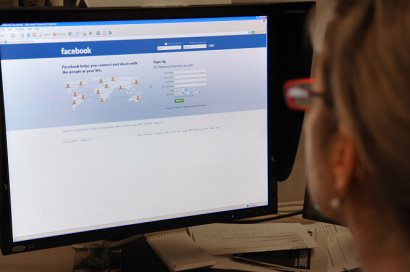Getting Past the Politically Driven Social-media Hate
by Heather Robinson

From The New York Post

For many Americans, 2016 was a year in which contentious political disputes at times spilled over into their personal lives, with social media pushing apart friends, neighbors and even family.
At the tail end of a bruising election year in which many Americans feel psychologically drained due to the nation’s political divisions, perhaps it’s worth reflecting on another cultural thread that emerged amidst the acrimony: individuals in the public eye who overcame politically driven hate and went “old school” — choosing to meet face to face, to relate to each other as human beings.
In a powerful example from earlier this month, two men who publicly clashed at a Trump rally in Fayetteville, NC, last March — Rakeem Jones, 26, and John McGraw, 79, — met in court.
And hugged it out.
It took some time to get there. First came a mediated online session via a Web site called Panacea Open Courtroom, in which they shared perspectives and listened to each other, before ultimately meeting face-to-face in the courtroom.
What’s striking when watching the video (available on YouTube) of their initial conversation is that, removed from the powder keg of the rally and speaking man to man, they quickly realized they had been caught up in the fervor of extreme politics and had no real beef with each other.
As Jones put it, “I don’t know you, I don’t know anything about you. I didn’t even know your name until the next day . . . honestly, I didn’t even know who hit me.” And ultimately McGraw, who apologized in court to Jones for the blow before the two embraced, said he regretted they were both caught up in a “political mess.”
But that truth could only emerge when they decided to slow down, talk and listen to each other.
Jones, who was sucker-punched in front of millions of viewers, deserves special commendation. But both men came to their senses in a triumph of emotional intelligence over political and technology-fueled hysteria.
It’s an important lesson in a year in which basic communication seemed to get lost in the haze of social media.
As Karol Markowicz wrote in these pages, people are culling their Facebook and Twitter followers as they root out suspected Trump supporters. And a recent poll found nearly a quarter of Democrats, and one-in-10 Republicans, admit to having “blocked, unfriended, or stopped following someone on social media after the election because of their political posts.”
The election year brought some more high-profile examples of social-media nastiness.
After Fox News’ Megyn Kelly asked then presidential candidate, now President-elect Donald Trump a tough question during the first Republican debate, Trump went on to level a vicious series of insults against her on Twitter. In her book released last month, “Settle for More,” Kelly recounts that over the course of the year, her family required armed protection due to death threats she received from some of Trump’s more extreme supporters.
After her stress reached a crescendo, Kelly decided to have an “old school” face-to-face sitdown with Trump.
“We had a friendly talk about the race so far and the general dynamic between us,” Kelly writes in her book, describing the meeting. “How could he be so affable, given the level of anger he’d sustained for so long? I tried to reconcile the person in front of me with the person I’d seen on Twitter — one warm and kind; the other — very different. They didn’t seem to match.”
One reason: It’s a lot harder for most people to treat others so hurtfully in person. Sure enough, after their tete-a-tete, Trump knocked it off.
Most of us would benefit from spending less time scrapping on social media and talking more with people, especially those with whom we may disagree, and looking for common ground. Perhaps it’s also time to do away with the painful mass delusion that we’re completely alienated from half the people in a country of 325 million, based solely on whether they voted for Donald Trump or Hillary Clinton.
In 2017, let’s look for inspiration to Rakeem Jones and Megyn Kelly, and to our neighbors in the helping professions — first responders, medical professionals and clergy — whose callings transcend politics. In order to do their jobs, these people know that in the real world, we’re more than just Democrats, Republicans and Independents; we’re human beings and, as Rakeem Jones said to John McGraw, “We’ve got to have a civilized conversation.”



